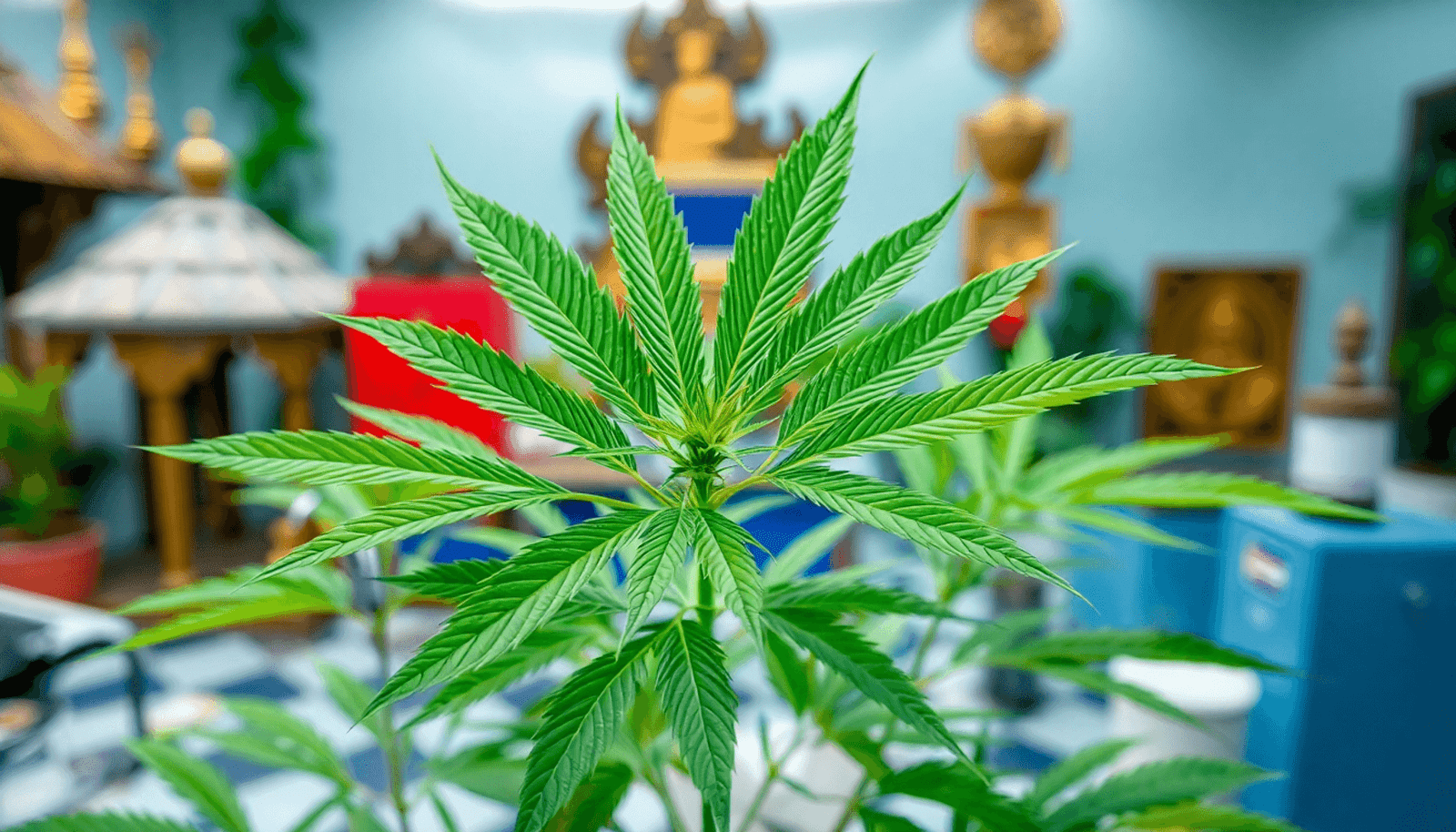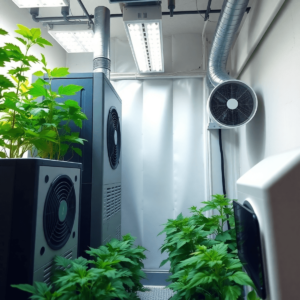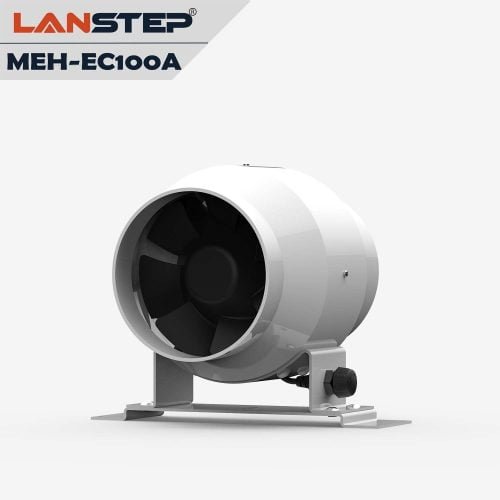Introduction
Thailand’s cannabis regulation is an example of innovation in international drug policy. As the first Asian country to legalize medical cannabis, Thailand has found a way to honor its cultural heritage while also embracing economic opportunities. The Thai model goes beyond just having rules in place; it aims to create a global model for balanced legalization.
Integration of Traditional Medicine
What makes Thailand different from other countries is its inclusion of traditional medicine practitioners in its regulatory system. While many places separate medical and recreational use of cannabis, Thailand combines both by incorporating traditional medicine practices into modern healthcare. This not only values ancient knowledge but also improves patient care by involving folk doctors and traditional healers.
Economic Impact
The economic impact of this approach is significant. Thailand aims to revitalize rural communities and empower farmers through cannabis cultivation. By doing so, the country hopes to use cannabis as a driving force for growth in local markets and international tourism.
Thailand’s experience provides valuable lessons for other nations dealing with cannabis legislation. It challenges traditional models by showing that cultural traditions can work alongside regulatory innovation, making it a potential global model for balanced legalization.
Thailand’s Journey Towards Legalization
The landscape of cannabis regulation in Thailand is a testament to the nation’s adaptability and foresight. In February 2019, a significant milestone was achieved with the legalization of medical cannabis, marking Thailand as the first country in Asia to embrace this progressive stance. This legislative leap was not an abrupt change but rather the culmination of a journey deeply rooted in historical context and societal evolution.
Historical Context
Thailand’s relationship with cannabis stretches back centuries, where it was traditionally used for medicinal purposes. However, like many nations, the global shift towards stringent drug policies in the late 20th century led to its criminalization. The tides began to turn in the early 2000s as the therapeutic potential of cannabis gained international recognition. Influential factors included:
- Rising awareness about the medical benefits of cannabis.
- Public advocacy from healthcare practitioners and patients seeking alternative treatments for chronic illnesses.
- Governmental acknowledgment of potential economic gains.
Key Milestones
 The path to legalization was marked by several pivotal moments:
The path to legalization was marked by several pivotal moments:
- Policy Reformation Initiatives (2016): The Thai government began exploring reforms around controlled substances, highlighting cannabis due to mounting evidence supporting its medical applications.
- Establishment of a Regulatory Framework (2018): Before legalization, Thailand crafted a comprehensive regulatory framework that laid out guidelines for cultivation, distribution, and usage under medical supervision.
- Legislative Approval (February 2019): The watershed moment when legislation passed allowing licensed medical use, signifying governmental trust in cannabis as a therapeutic agent.
The role of healthcare practitioners was instrumental throughout this process. Doctors and traditional medicine practitioners advocated for policy changes, emphasizing cannabis’s efficacy in treating conditions such as epilepsy and chronic pain. Their involvement ensured that regulations were medically sound and patient-centric.
Challenges Post-Legalization
Post-legalization, Thailand faced challenges such as ensuring compliance with international drug treaties and balancing quality assurance with accessibility. Addressing these issues required continuous dialogue between policymakers, healthcare professionals, and traditional healers.
Thailand’s journey towards legalizing medical cannabis showcases a blend of innovation and tradition, setting a precedent for countries worldwide contemplating similar paths.
Integration of Traditional Medicine Practices in Thai Cannabis Regulation
Thailand’s cannabis regulation is not just a legal system; it is a blend of cultural heritage and modern science. At the core of this integration is the inclusion of traditional medicine practitioners in the cannabis industry. This approach showcases Thailand’s respect for its ancestral traditions while also embracing innovative healthcare practices.
Exploring the Incorporation of Traditional Medicine:
The inclusion of traditional medicine in Thailand’s cannabis regulation represents more than just smart legislation. It demonstrates a cultural acceptance that recognizes the wisdom found in ancient healing methods. Traditional medicine practitioners, commonly known as folk doctors, have always been respected for their knowledge of herbal remedies and natural therapies. The regulatory framework not only acknowledges their expertise but also empowers them to play a significant role in patient care through cannabis-based treatments.
- Cultural Acceptance: There is a widespread cultural acceptance and trust in traditional medicine among the Thai people, which has facilitated its integration into modern healthcare systems. This acceptance ensures that cannabis treatments are delivered with an understanding of both contemporary medical insights and time-tested healing traditions.
Role of Folk Doctors and Traditional Healers:
Folk doctors and traditional healers are essential in providing medical cannabis treatments. Their involvement is crucial for patients who seek alternative therapeutic options rooted in holistic care philosophies. Within the regulatory framework, these practitioners are recognized as important contributors to patient wellness, offering personalized care plans that include cannabis as part of broader healing strategies.
- Recognition within the Regulatory Framework: The Thai government has established channels for these practitioners to operate within legally sanctioned boundaries, ensuring quality control and patient safety while preserving traditional methodologies. This recognition serves as an endorsement of their critical role in enriching the country’s healthcare landscape.
Thailand’s combination of traditional practices with regulated cannabis use serves as an example for other countries looking to balance cultural heritage with modern health solutions, offering a thoughtful approach towards achieving balanced legalization.
Economic Opportunities and Challenges in a Regulated Cannabis Market
Thailand’s decision to have a legal cannabis market opens up opportunities for significant economic growth. This forward-thinking approach not only shows that the country is open-minded, but also makes Thailand a role model for others thinking about doing the same thing. The potential economic benefits are huge, especially for rural communities and farmers who are shifting to growing cannabis.
Potential Economic Benefits:
- Empowerment of Rural Farmers: As traditional farming industries face difficulties, growing cannabis presents an appealing option, giving power back to rural farmers with fresh prospects. By incorporating cannabis into their existing crops, these communities can broaden their sources of income and strengthen their economic stability.
- Industry Growth and Employment: The legalization framework encourages the expansion of the industry, resulting in job opportunities across different fields—from cultivation to distribution. With appropriate regulatory backing, this can lead to sustainable livelihoods for thousands within Thailand.
Government Strategies:
The Thai government has implemented strategic measures to leverage cannabis for economic development while ensuring that quality assurance and affordability remain at the forefront:
- Quality Assurance Measures: Strict regulations have been established to maintain high standards in production, ensuring that both medical and recreational products meet safety guidelines. This builds trust among consumers and enhances Thailand’s reputation on the global stage.
- Affordability Initiatives: By regulating the market effectively, the government aims to keep prices accessible for patients reliant on medical cannabis. Ensuring affordability is crucial in maintaining public support and maximizing therapeutic benefits.
Thailand’s model serves as a bold example of how traditional practices can harmoniously coexist with modern regulations. This unique blend not only distinguishes Thailand from other nations but also provides valuable insights into achieving a balanced legalization that addresses both economic growth and societal needs.
Lessons from Thailand’s Unique Model: Balancing Medical and Recreational Use
Thailand’s cannabis regulation presents an exemplary approach to balancing medical vs recreational use, reflecting a nuanced understanding of policy implications and public health concerns. This balance is crucial in crafting legislation that safeguards public well-being while allowing for personal freedom.
Policy Implications and Public Health Concerns
1. Public Health Safety
The Thai model prioritizes public health by implementing strict guidelines for recreational consumption. These include age restrictions, controlled distribution points, and stringent monitoring of product quality. Such measures aim to mitigate potential risks associated with cannabis use, such as addiction or impaired cognitive function.
2. Medical Use Regulation
By integrating traditional medicine practices within the medical cannabis framework, Thailand ensures that patients receive holistic care. Licensed clinics and practitioners provide access to cannabis treatments, maintaining high standards of safety and efficacy while respecting cultural heritage.
Effectiveness of Thailand’s Approach
Thailand effectively addresses both medical and recreational aspects by learning from the regulatory frameworks of countries like Canada and Uruguay:
- Canada has demonstrated success in controlling the legal cannabis market through robust regulations and public education campaigns. Thailand mirrors this by investing in educational programs that inform citizens about safe usage and potential risks.
- Uruguay, as a pioneer in full legalization, emphasizes state control over cannabis sales to prevent illicit trade. Similarly, Thailand enforces strict licensing processes for cultivation and distribution, ensuring that legal cannabis remains separate from illegal markets.
This dual focus on regulation and education exemplifies Thailand’s strategic approach, positioning it as a model for other nations striving to balance the complexities of cannabis legalization. In doing so, Thailand not only addresses immediate regulatory needs but also fosters a culture of informed and responsible use among its citizens.
Global Perspectives on Cannabis Legalization: The Potential Influence of Thailand’s Model
The landscape of cannabis legalization is as diverse as the nations that navigate it. While countries like Canada and Uruguay have embraced full legalization, others maintain stringent prohibitions. This variety of international attitudes shows an ongoing conversation about how to find the right balance between regulation and freedom. Thailand’s cannabis regulation stands out as an example, offering a global model for balanced legalization.
Comparison with Other Countries’ Legalization Models
Several countries have taken different approaches to cannabis regulation:
- Canada has legalized both medical and recreational use, focusing on public health education and controlled access.
- Uruguay, being the first to do so, aims to eliminate illegal trade through state-controlled distribution.
- In contrast, countries like Japan and Singapore continue to uphold strict prohibitive policies.
Thailand’s approach is unique because it combines traditional medicine practices with modern regulations—a combination that is rarely seen in other places.
Balance Between Medical and Recreational Use
Thailand’s model effectively balances medical and recreational cannabis use, setting it apart from other countries. By including traditional healers in the legal system, it expands access while promoting responsible consumption. This approach may inspire nations looking to find a middle ground between public health and personal freedom.
Integration of Traditional Medicine Practitioners
One distinctive aspect of Thailand’s regulatory framework is its acknowledgment of traditional medicine practitioners. This integration enhances patient care by combining ancient herbal knowledge with current medical methods, fostering a comprehensive healthcare system that honors cultural heritage.
Economic Implications of Regulated Cannabis Market
Economically, Thailand sees cannabis as a driver for development—especially benefiting rural communities shifting towards this profitable crop. The potential economic boost from retail sales and tourism presents a strong argument for other countries considering similar initiatives.
As the world watches Thailand’s groundbreaking actions, its cultural acceptance of traditional medicine alongside modern regulations provides valuable insights into creating laws that honor both tradition and progress.
Conclusion
Thailand is leading the way in cannabis regulation by combining traditional medicine with modern systems. This approach, which is different from other countries, shows a deep respect for cultural heritage while also accepting current health practices.
Here are some key points that highlight Thailand’s unique approach to cannabis regulation:
- Comparison with Other Models: Unlike many Western frameworks that often separate recreational and medicinal uses, Thailand’s regulations reflect a harmonious balance, acknowledging both the therapeutic and economic potentials of cannabis.
- Economic Implications: The regulated market promises significant economic growth, particularly for rural communities, exemplifying how cannabis can be leveraged as an economic asset without sidelining public health priorities.
- Integration of Traditional Medicine Practitioners: The inclusion of traditional healers within the legal framework is a testament to Thailand’s holistic vision and could serve as inspiration for other nations seeking to enrich their regulatory landscapes.
As we look at the world today, there is much that other countries can learn from Thailand’s groundbreaking journey. It is important for nations to consider combining traditional knowledge with strict regulations. By doing this, they may create a future where cannabis governance is more inclusive and balanced.
FAQs (Frequently Asked Questions)
What makes Thailand’s cannabis regulation a global model for balanced legalization?
Thailand’s cannabis regulation is considered a global model due to its unique integration of traditional medicine practices alongside modern regulatory frameworks. This approach not only addresses medical and recreational use but also emphasizes economic development through cannabis cultivation, particularly benefiting rural communities.
What historical milestones led to the legalization of medical cannabis in Thailand?
The journey toward the legalization of medical cannabis in Thailand began with significant regulatory reforms in February 2019. Key milestones include the involvement of healthcare practitioners in shaping the regulatory framework and overcoming challenges related to public perception and infrastructure post-legalization.
How are traditional medicine practitioners involved in Thailand’s cannabis landscape?
Traditional medicine practitioners, including folk doctors and healers, play a crucial role in Thailand’s cannabis landscape. They are recognized within the regulatory framework, allowing them to contribute to patient care and integrate traditional healing practices with modern cannabis treatment options.
What economic opportunities does a regulated cannabis market present for Thailand?
A regulated cannabis market in Thailand presents numerous economic opportunities, particularly for rural farmers who can transition to cannabis cultivation. The government aims to leverage this sector for economic growth while ensuring quality assurance and affordability for patients.
How does Thailand balance medical and recreational use in its cannabis legislation?
Thailand’s model effectively balances medical and recreational use by establishing clear policies that address public health and safety concerns. By learning from the experiences of other countries like Canada and Uruguay, Thailand has crafted regulations that accommodate both aspects without compromising on safety.
What potential influence could Thailand’s model have on global cannabis legalization policies?
Thailand’s unique approach to cannabis regulation may influence global policies by showcasing the benefits of integrating traditional practices with modern regulations. This could encourage other nations to adopt similar holistic approaches that respect cultural acceptance while addressing contemporary legal frameworks.











